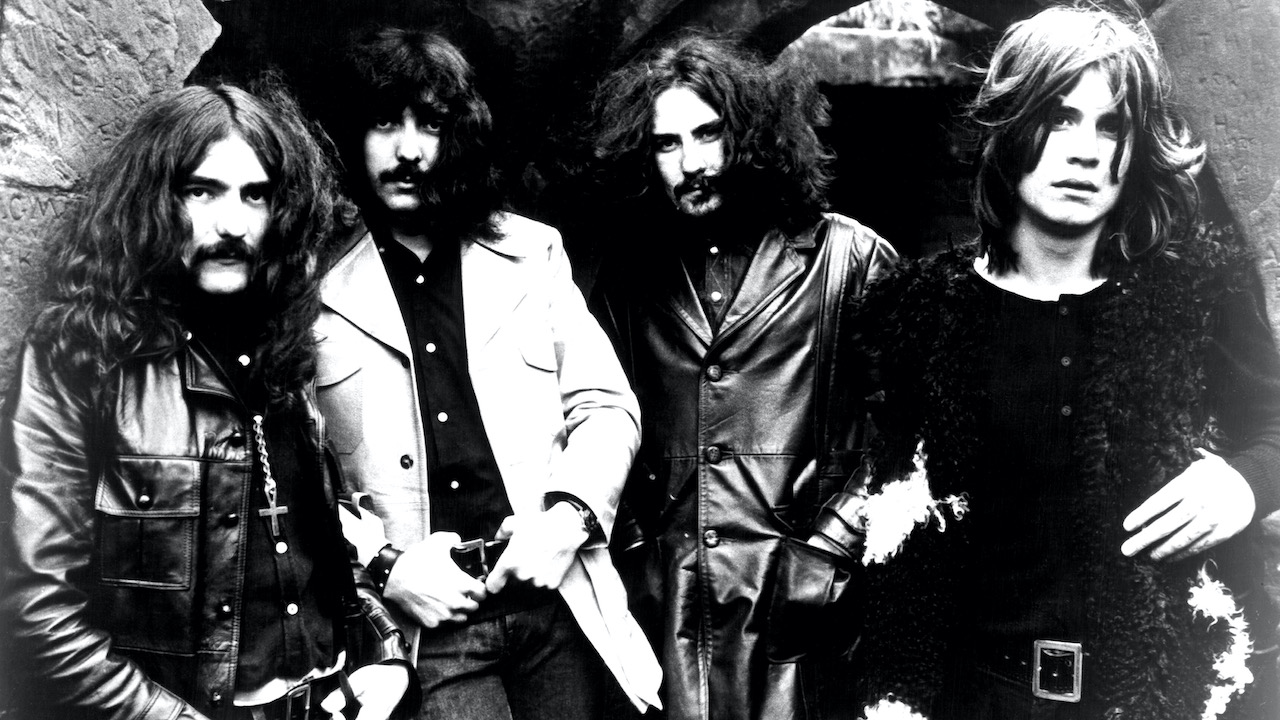
Geezer Butler's excitement upon receiving his own very vinyl copy of Black Sabbath's debut album was tempered somewhat when he opened its gatefold sleeve.
"I saw the upside-down cross and thought, ‘Oh God!’ because I knew I couldn’t bring it home," he remembers. "My family are strict Irish Catholics and my dad would have gone mental.”
To be fair to artwork designer Keith 'Keef' McMillan, the band were intent upon making "dark music for dark times" as Ozzy Osbourne once stated, and there was a very good reason why the quartet drew upon occult influences on the ominous, doomy title track and Behind The Wall Of Sleep.
"I totally believed in the devil,” bassist and lyricist Butler admitted to MOJO's Phil Alexander. "I started reading books by Aleister Crowley and Dennis Wheatley, especially The Devil Rides Out, which was meant to be a cautionary tale but which read like a handbook on how to be Satanist."
"Ozzy gave me this 16th-century book about magic that he’d stolen from somewhere. I’d put it in an airing cupboard because I wasn’t sure about it. Later that night I woke up and saw this black shadow at the end of my bed. It was a horrible presence that frightened the life out of me! I ran to the airing cupboard to throw the book out but the book had disappeared!"
It wasn't until the band played their first shows in America that they began to realise that they had tapped into forces they might not be able to control.
"We didn’t think anything of it until the first American tour," Butler told Metal Hammer's Alex Milas in 2019. "There was some black magic organisation that wanted us to play at a stone circle… We said no – we were sort of against Satan as opposed to promoting it – so they allegedly cursed us.
"The head of the white witches called our management and said he knew we had a curse put on us, and we should wear crosses and he’d do a ritual thing. It all sounds so hokey.”
“Yeah, that’s why we started wearing crosses! Ozzy’s father made them for us. He used to work at a metal factory making car parts, so he made us these great big crosses out of spare metal.”
As he remembers it, Butler's own parents weren't impressed with their son dabbling in dark matter.
"I remember coming back from our first American tour, and I had kidney stones, so my mum and dad came around to the flat I was living in to see me," the bassist once told this writer. "I’d got upside down crosses and posters of Satan all over the walls, which were painted black, and my dad nearly had heart failure. He went around tearing everything down."
Given his devout Catholic upbringing, with its attendant visions of torture Hell for sinners and its apocalyptic warnings of Satan's diabolical power, it was understandable that the teenage Geezer Butler, a curious and clever lad, would begin to "read about the other side" as he once told Metal Hammer. But those who only see darkness in Butler's lyrics miss the fact that they're often moral and compassionate and are actually critiquing evil and negativity in the world.
"Absolutely," Butler replied when I put this to him in 2018. "I’d been interested in Satanism and things started going wrong, so I quickly gave up on black magic. Black Sabbath was a warning against black magic and Satanism."
Asked to specify the exact nature of “things going wrong”, the bassist said, "Well, my aunt and uncle died, and my mum was having a nervous breakdown, and I associated this with the bad vibes from stuff that I was getting into. So I turned 180 degrees away from it and started trying to put out more positive energy."
Butler will doubtless expand upon his experiences with the occult in his forthcoming autobiography, Into the Void: From Birth to Black Sabbath – and Beyond, which will be published in June.
The synopsis for the book reads: "Into the Void sees Geezer tell his side of the Sabbath story for the first time, from early days as a scrappy blues quartet through to the many lineup changes, the record-breaking tours and the international hell-raising with Ozzy Osbourne, Tony Iommi and Bill Ward.
Featuring Geezer’s candid reflections on his working-class childhood in Luftwaffe-battered Birmingham, his almost-life as an accountant and his fascination with horror, religion and the occult, Into the Void will also include 30 photos from Geezer’s personal collection – some never-before-published.”







